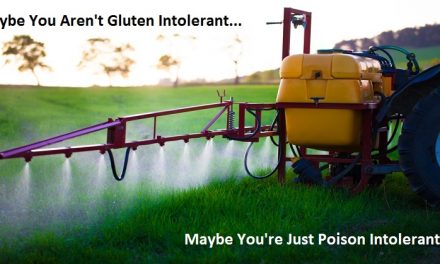It wasn’t until both of Verai Ramsammy’s dogs became ill that her vets started to question what was going on. After all, Ramsammy was the kind of dog mom that bought special food and took good care of her babies. Their symptoms didn’t make any sense.
“Their cases helped link a serious, sometimes fatal, heart condition with the latest dog food fad. As more cases were reported from around the country this year, veterinarians and the U.S. Food and Drug Administration (FDA) began investigating a potential link between boutique, grain-free diets and a heart disease called canine dilated cardiomyopathy (DCM), which had been known primarily as a genetic disorder. This summer, the FDA issued a caution against grain-free diets. Since then, many more reports have poured in.”1
Sadly, three weeks after her first dog Louie’s minor cough and bronchitis misdiagnosis, an emergency trip to North Carolina State University’s veterinary hospital found that the pup had an enlarged heart and fluid filled lungs. Ramsammy held him as he died, one month after his symptoms began. (Thankfully, three months later, Mico, her second schnauzer was saved.)
And so, on July 12, the FDA put out a cautionary statement saying that while canine DCM was typically caused by a genetic predisposition in large breed dogs the recent cases included “Golden and Labrador retrievers, a Whippet, a Shih Tzu, a Bulldog and Miniature Schnauzers, as well as mixed breeds. Early reports … indicate that the impacted dogs consistently ate foods containing peas, lentils, other legume seeds or potatoes as main ingredients.” 2 (Before they actually released the cautionary statement, they had already received 30 reports of dogs affected with DCM and linked to a grain-free diet. But since then, the FDA has received reports of an additional 120 dogs sickened with DCM, most involving a grain-free diet and at least 24 dogs have died of the condition.)
Although the FDA is still investigating the link with grain-free pet food no dog food has been recalled.
The condition is linked to a taurine (an amino acid that most animals and humans make on their own) deficiency. Normally, dogs get a lot of it from their diet thanks to chicken and beef. However, rabbit, lamb, legumes, pea-protein and other ingredients found in some grain-free foods have little or no taurine. Some dog owners may think their dogs have allergies, and they may indeed, but it is more common for dogs to be allergic to meat, not grains. In fact, chicken is a common allergen for dogs. While a dog can be allergic to corn or wheat, vets say it is very rare to find a dog that’s allergic to all grains. And, it isn’t the worst thing in the world for dogs to consume up to 50 percent of their diet as carbohydrates.
“The FDA and federal law have mandated that pet food be safe and properly labeled. However, in a statement to The Washington Post, the agency said: “It is the manufacturer’s responsibility to ensure that the animal food products it produces are safe. … The FDA has the authority to take action when animal food is unsafe or if a label is inaccurate or misleading.” The FDA “does not have premarket approval authority” for pet food formulas before the bags of kibble appear on store shelves.”3
For dogs genetically predisposed to DCM, the condition is irreversible. However, with these new cases, adding taurine to the dogs’ diet and removing legumes can reverse the disorder if caught early enough. As in the case of Mico, Ramsammy’s second baby, who has successfully been on heart medications since May 2017 and is doing very well.












